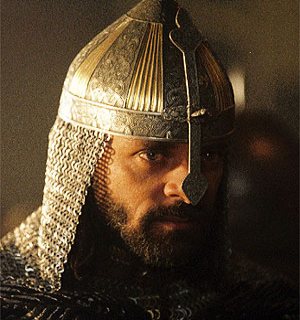|
Define LeadershipWhat Makes A Good Leader?
We can define leadership as the process by which a person influences others to accomplish an objective. Leaders have a vision that they share with others. It is the leader who binds the organization together with beliefs, values and knowledge and who makes it more cohesive and coherent. We can also define leadership as a process that motivates people to excel in the field in which they are working.
Can leadership be taught?Many would say that leadership qualities are not inborn but can be developed gradually through education and self-study. Personally I am not so sure about this. The current assumption is that leadership can be taught. There are very many courses, seminars and books on leadership and a big demand for training to develop leadership skills. On the basis of my life experience and as I define leadership - it is my view that you can most effectively teach leadership skills to someone who has the latent [and maybe unrecognized and unacknowledged] potential to be a leader. Management skills can be taught to just about anyone of at least average intelligence and education [and in saying that I am not denigrating management]. However, a brief review of the differences between leadership and management suggests that leadership owes as least as much to "nature" as it does to "nurture".
Most People Would Rather FollowIn my experience of attempting to define leadership and of observing leaders in action - the vast majority of people are followers and not leaders and very happy to remain so. Leaders are a very small percentage of the population maybe less than 1% and really strong leaders with the potential to really change things [for better or worse] probably less than 0.1%. Again, in my experience, most people would far rather be led than lead.
Peter Drucker: Successful Leaders Ask 'What Needs To Be Done?'"Successful leaders don't start out asking, 'What do I want to do?' They ask, 'What needs to be done?' Then they ask, 'Of those things that would make a difference, which are right for me?' They don't tackle things they aren't good at. They make sure other necessities get done, but not by them. Successful leaders make sure that they succeed! They are not afraid of strength in others. Leaders communicate in the sense that people around them know what they are trying to do. They are purpose driven - yes, mission driven. They know how to establish a mission. You know, I was the first one to talk about leadership 50 years ago, but there is too much talk, too much emphasis on it today and not enough on effectiveness.
A Leader Has Followers
The only certain thing you can say about a leader is that a leader is somebody who has followers. Look, one of the most effective American presidents of the last 100 years was Harry Truman. He didn't have an ounce of charisma. Truman was as bland as a dead mackerel. Everybody who worked for him worshiped him because he was absolutely trustworthy. If Truman said no, it was no, and if he said yes, it was yes. And he didn't say no to one person and yes to the next one on the same issue. The other effective president of the last 100 years was Ronald Reagan. His great strength was not charisma, as is commonly thought, but that he knew exactly what he could do and what he could not do. We have talked a lot about executive development. We have been mostly talking about developing people's strength and giving them experiences. "Character is developed inside out..." Character is not developed that way. That is developed inside and not outside. I think churches and synagogues and the 12-step recovery programs are the main development agents of character today.
Your Leadership Determines Your Company's FortunesAs we attempt to define leadership in practise in this section, we are going to look in a little more depth at some of the key theories, and especially the work of James Mcgregor Burns and Bernard Bass on Transformational Leadership theory, and that of Hersey and Blanchard on Situational Leadership; and the more recent work of Daniel Goleman [the proponent of emotional intelligence] on Primal Leadership. How we define leadership, how we understand it and how we exercise it, is of paramount importance in the current economic and business climate as the quality of your leadership could be a major factor in determining your company's fortunes.
What makes a great leader?
Highly recommended additional resourcesI recommend each of the following 4 reports as informed expert background reading:
Each of these links will take you to a page with further specific information on major and relevant Leadership Theory and attempts to define leadership. In the pages that follow, we are going to explore some of these leadership theories in more depth and attempt to define leadership in the light of these theories, and to assess their relevance and application to the whole business of change management. [They are presented largely in chronological order, reflecting the evolving thought and understanding of leadership.]
Leadership theories - So are leaders born or made?
Trait Theory - Leaders ARE born not made...
|




 Leadership versus management -
Leadership versus management - 

